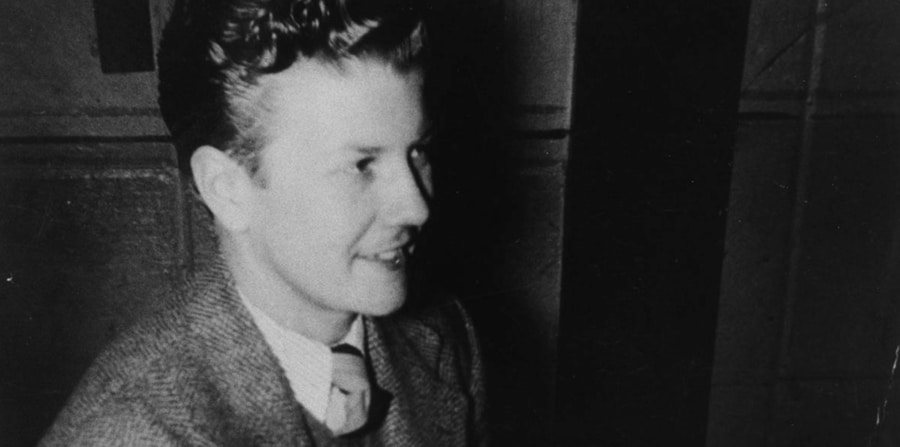




Dir: Aisling Chin-Yee, Chase Joynt | US Doc
The story of jazz musician Billy Tipton (1914-89) is seen from the perspective of his sexuality rather than his musical talent in this new, experimental documentary from Canadian filmmakers Aisling Chin-Yee and Chase Joynt (who is trans). They see Tipton as a trans trailblazer, a jazzy gender bender. But his common-law wife Kitty Kelly claims never to have realised he was a woman. And it didn’t end there. Another three ‘wives’ under his belt and three adopted kids later, this trans legend still had everyone fooled almost everyone. And who really cared when he played the piano so divinely and was always ready to improvise when another musician dropped out.
By way of background, Billy was born Dorothy Lucille Tipton in Oklahoma City on December 29, 1914 and was raised by an aunt in Alabama, but later adopted Spokane, Washington as his home. Tipton had shown a keen interest in jazz but was barred from joining the all-male school band at Southwest High School. But perseverance paid off and he eventually developed a serious musical career as a ‘male musician’ by concealing his female form and calling himself Billy Lee Tipton in the early 1930s. By 1940, Tipton was living as a man in private life as well in public.
But rather than sensationalising the reveal of his being transexual, the filmmakers’ focus here is laudably Tipton’s legacy as a ‘transmasculine’ icon, inspiring the lives of many. During his lifetime he was successfully all things to all people: Kelly claiming. “Billy Tipton was a man in every sense of the word,” – “he was the best husband anyone could have dreamed of” adding “He will always be a man. He will be nothing more than a man” to a stunned audience in one of Oprah Winfrey’s chat shows.
Enriched by archive material, newspaper clips and excerpts from Stanford professor Diane Middlebrook’s 1998 biog ‘Suits Me: The Double Life of Billy Tipton’, this is an intellectually bracing film informed by a welter of authoritative talking heads, most poignantly Tipton Jr. Amongst them is also author and gender theorist Kate Bornstein who asserts “there was no such thing as a trans man back in the 1980s. But one can hardly blame Billy for embracing the idea that being a ‘man’, rather than a woman, would path the way to success in the music business (or any business) back then. Had he stayed cisgender we may never have enjoyed his brilliant contribution to the world of jazz. Tunes like “Please Don’t Be that Way”.
Susan Stryker, a filmmaker, author and professor of Gender and Woman’s Studies comments on the rampant transphobia of the 1980s, hardly surprising when even nowadays the whole idea of trans sexuality still has some people run, screaming for the hills. But no-one has any proof that Tipton, who began presenting as a man from the ago of 19, made any fuss about his conception of gender identity, one must assume he just got on and did it, joining the party with so many other artists of the era who freely indulged their queer sexuality while being married to ‘women or men’.
What makes this film so innovative is the filmmakers’ framing device that sees a group of talented trans-masculine actors auditioning for the main role in a putative Tipton documentary, taking their cues from the (offscreen) directors in order to perform Billy at pivotal moments during his career – such as his first meeting with Duke Ellington, and so on. This offers them a collaborative springboard to then voice their own experiences and impressions of trans-masculinity with reference to Tipton – a very popular device nowadays – but not if you’re just yearning for a straight up biopic of the legendary musician himself, which hasn’t been done before.
No Ordinary Man does fall into the trap of allowing judgement of the past to be made by today’s standards, with a double time line – twenty years after the Middlebrook biog, and another nearly ninety, since Billy first put on masculine garb. We are living in a hyper-sensitive age where there are so many differing viewpoints and so many platforms available to give these varying stances voice, it’s almost impossible not to offend. But in this instance the film provides pithy insight into the trans experience, widening the debate for those affected by the issues, and offering worthwhile insight into how trans stories are often framed from the cisgender viewpoint – all in a meaty 83 minutes. Poignant also to that Tipton junior is able to hear more about his famous forebear. Well made, engaging and powerful. MT
SCREENING DURING BFI FLARE 2021